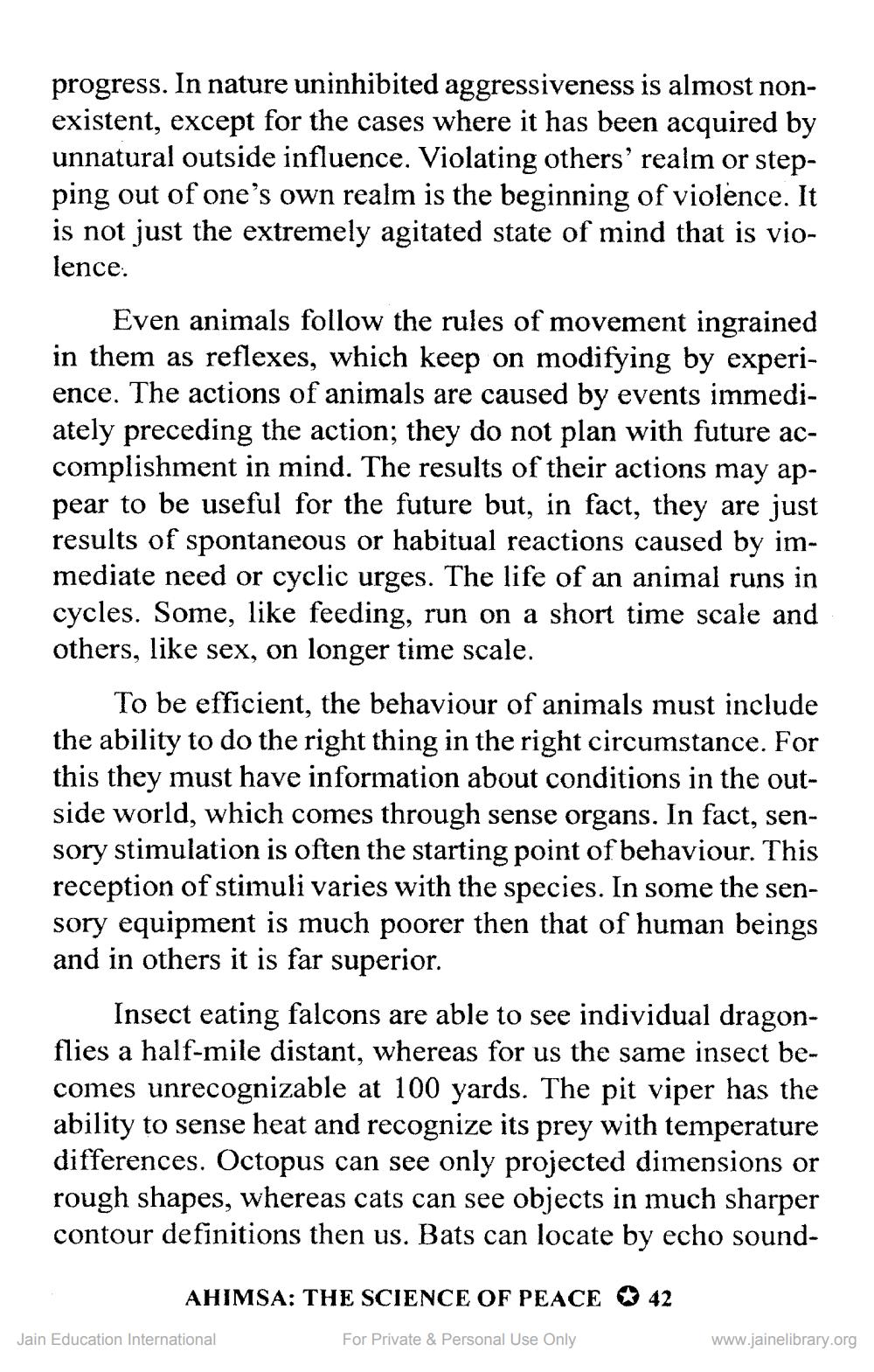________________
progress. In nature uninhibited aggressiveness is almost nonexistent, except for the cases where it has been acquired by unnatural outside influence. Violating others' realm or stepping out of one's own realm is the beginning of violence. It is not just the extremely agitated state of mind that is violence.
Even animals follow the rules of movement ingrained in them as reflexes, which keep on modifying by experience. The actions of animals are caused by events immediately preceding the action; they do not plan with future accomplishment in mind. The results of their actions may appear to be useful for the future but, in fact, they are just results of spontaneous or habitual reactions caused by immediate need or cyclic urges. The life of an animal runs in cycles. Some, like feeding, run on a short time scale and others, like sex, on longer time scale.
To be efficient, the behaviour of animals must include the ability to do the right thing in the right circumstance. For this they must have information about conditions in the outside world, which comes through sense organs. In fact, sensory stimulation is often the starting point of behaviour. This reception of stimuli varies with the species. In some the sensory equipment is much poorer then that of human beings and in others it is far superior.
Insect eating falcons are able to see individual dragonflies a half-mile distant, whereas for us the same insect becomes unrecognizable at 100 yards. The pit viper has the ability to sense heat and recognize its prey with temperature differences. Octopus can see only projected dimensions or rough shapes, whereas cats can see objects in much sharper contour definitions then us. Bats can locate by echo sound
AHIMSA: THE SCIENCE OF PEACE
42
Jain Education International
For Private & Personal Use Only
www.jainelibrary.org




